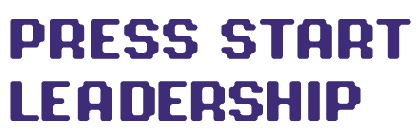Don’t Let Your Indie Game Be the Industry’s Best-Kept Secret: Strategies for Making a Mark in the Gaming World
In the bustling realm of video game development, indie game creators stand as architects of innovative, compelling narratives and gameplay experiences. However, without the backing of major publishing houses, these creators face the monumental challenge of securing visibility in a saturated marketplace. It is here, at the intersection of creativity and commerce, that marketing emerges as a pivotal force in the trajectory of an indie game’s success. This article embarks on an exploration of the indispensable role that marketing plays in elevating indie game titles from obscurity to prominence, offering a beacon for developers seeking to chart their path in the gaming industry.
The Indie Game Odyssey: From Creation to Market
The journey of an indie game from concept to consumer hands is fraught with challenges, chief among them the task of standing out in a sea of competitors. In this digital age, the production of video games has become increasingly accessible, leading to a deluge of titles vying for attention. Marketing, therefore, is not merely an adjunct to the development process but a crucial pillar that supports the entire endeavor, ensuring that a game not only reaches its intended audience but also resonates with them on a meaningful level.
Foundations of Marketing Success for Indie Games
1. Identifying the Target Audience: The first step in crafting an effective marketing strategy is understanding who the game is for. Indie developers must delve into demographic research, player preferences, and community engagement to pinpoint the audience that will most likely be captivated by their game.
2. Crafting a Compelling Narrative: Indie games often thrive on their story, uniqueness, and the passion behind their creation. Marketing these aspects effectively requires crafting a narrative that appeals to the target audience, highlighting what sets the game apart from mainstream titles and other indies.
3. Leveraging Social Media and Digital Platforms: In the digital era, platforms like Twitter, Instagram, Facebook, and YouTube serve as vital channels for indie developers to showcase their work, share development updates, and engage with potential players. Success stories often feature savvy use of these platforms, emphasizing the importance of a consistent, engaging social media presence.
4. Community Engagement and Building: The heart of indie gaming lies in its communities. Successful indie games often have vibrant communities that not only support the game through its development but also champion it upon release. Engaging with players, soliciting feedback, and fostering a sense of belonging can turn casual players into devoted fans.
5. Strategic Use of Crowdfunding Platforms: Platforms like Kickstarter and Indiegogo offer more than just a means to raise funds; they provide a platform for marketing and audience building. Successful crowdfunding campaigns can significantly raise a game’s profile, create early adopters, and validate the concept in the public eye.
6. Influencer Collaborations and Press Coverage: Collaborating with influencers and securing press coverage can exponentially increase a game’s visibility. Identifying and reaching out to content creators and journalists who align with the game’s ethos can lead to valuable exposure to wider audiences.
Case Studies: Indie Success Through Marketing Mastery
Several indie titles have transcended niche appeal to become global phenomena, largely through astute marketing strategies. By examining these success stories, developers can glean insights into effective marketing tactics and their implementation.
1. The Power of Storytelling in “Firewatch”: Campo Santo’s debut title leveraged a captivating narrative and striking visuals, paired with strategic teaser releases and storytelling through social media, to build anticipation and attract a dedicated following before its release.
2. Community Engagement in “Among Us”: InnerSloth’s “Among Us” saw an astronomical rise in popularity years after its initial release, thanks in part to the game’s adoption by influencers and the developers’ active engagement with its burgeoning community across social platforms.
3. Crowdfunding Success of “Hollow Knight”: Team Cherry’s “Hollow Knight” is a testament to the power of crowdfunding combined with a clear, compelling presentation of the game’s vision, which not only met its funding goals but also built a passionate early fan base.
Strategies for Effective Marketing on a Budget
Indie developers often operate within tight budgetary constraints, making cost-effective marketing strategies paramount. This section delves into tactics that maximize impact without necessitating significant financial investment, including guerrilla marketing techniques, leveraging free tools and platforms for content creation, and the importance of organic, word-of-mouth promotion among gaming communities.
Additionally, I would love to stay in touch and keep you updated on all the latest developments and insights in the world of leadership. That’s why I encourage you to sign up for my newsletter. Not only will you receive regular updates, but as a thank you for joining, I will also send you my free eBook, “5 Heroic Leadership Skills.” This eBook is packed with practical tips and strategies that will help you take your leadership skills to the next level.
So don’t wait! Sign up for my newsletter today and start your journey towards becoming a more effective and inspiring leader. I can’t wait to hear from you.
Work With Me!
If you’re on the quest to elevate your team’s leadership, production, or game design capabilities, I’m here to assist! Leveraging extensive experience and a strategic approach, I offer personalized audits, bespoke workshops, and leadership retreat facilitation to drive your team toward excellence. My commitment is to provide efficient, reliable, and proven support, ensuring you have the tools and insights needed to thrive. Ready to unlock your team’s full potential and achieve unparalleled success? Don’t hesitate—Press Start on your journey to transformation today! Feel free to reach out directly to discuss how we can tailor a solution to meet your unique needs and goals. Let’s connect and take your team’s performance to the next level!
🔗 www.pressstartleadership.com
📧 contact@pressstartleadership.com


